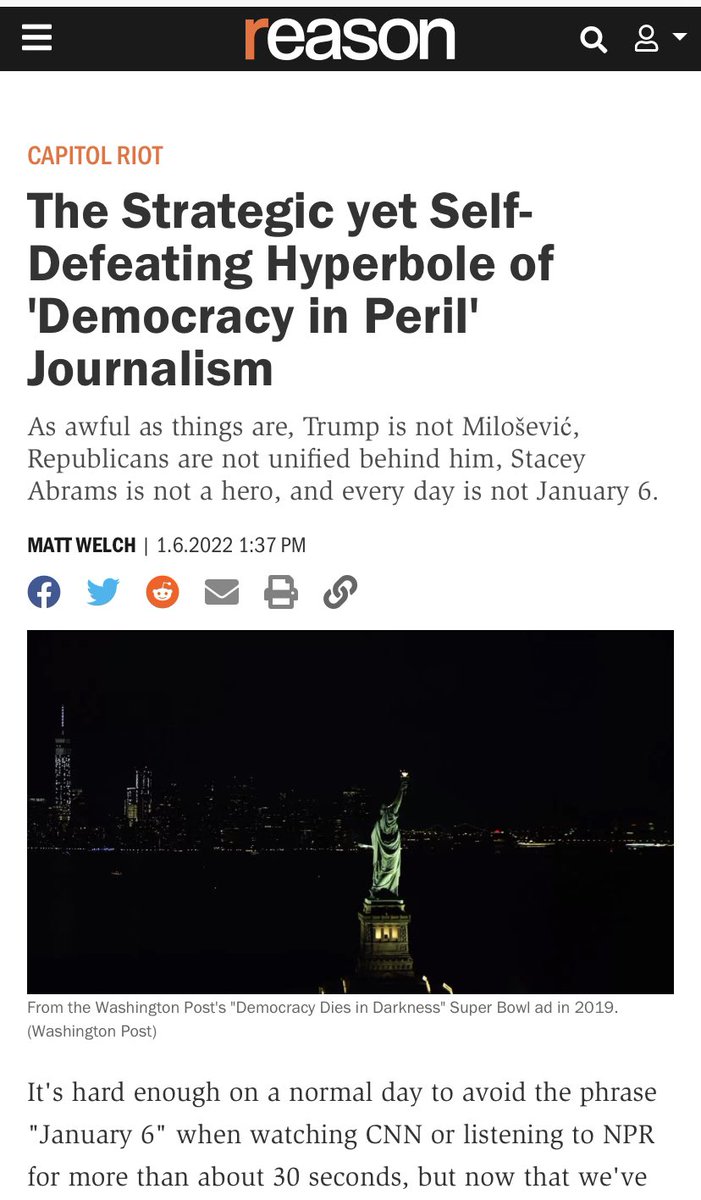
America at a Crossroads: Multiracial Democracy or Authoritarian Reactionary Rule
My piece for @GuardianUS - on what is at stake in the fight over voting rights legislation, what is behind the Republican assault on democracy, and why this is such a crucial moment in U.S. history.
My piece for @GuardianUS - on what is at stake in the fight over voting rights legislation, what is behind the Republican assault on democracy, and why this is such a crucial moment in U.S. history.
https://twitter.com/gdnusopinion/status/1483769341564710914
MLK Day came and went, and it doesn’t look like federal legislation to counter the Republican assault on the political system at the state and local levels is coming. Time is running out: It might soon become impossible to stop the accelerating slide into authoritarianism.
The country is rapidly turning into a dysfunctional pseudo-democratic system at the national level – and on the state level will be divided into democracy in one half of the states, and authoritarian one-party rule in the other. As a whole, America would cease to be a democracy.
If that sounds far-fetched, remember that it would in many ways constitute a return to what was the norm until quite recently. Before the 1960s, America was fairly democratic only if you happened to be a white Christian man – and something entirely different if you were not.
The Reconstruction period after the Civil War was a notable exception. But America’s first attempt at biracial democracy was quickly drowned in white reactionary violence and a flurry of supposedly race-neutral laws, establishing an apartheid regime that lasted nearly a century.
We must acknowledge that the stakes in the current fight over voting rights are enormously high. And not just for America: As a similar conflict is shaping the political, social, and cultural landscape across the “West,” this is a struggle of world-historic significance.
Far-right movements across the West rejoiced when Donald Trump became president because they saw his election as evidence that multiracial, pluralistic democracy couldn’t work, that the reactionary counter-mobilization would ultimately prevail. America needs to prove them wrong.
Will the U.S. finally become a functioning multiracial, pluralistic democracy - or will the history books record the years from the mid-1960s through the 2020s as a fairly short-lived and ultimately aborted experiment, before a more restricted, white man’s democracy was restored?
https://twitter.com/GdnUSopinion/status/1483769341564710914
• • •
Missing some Tweet in this thread? You can try to
force a refresh














